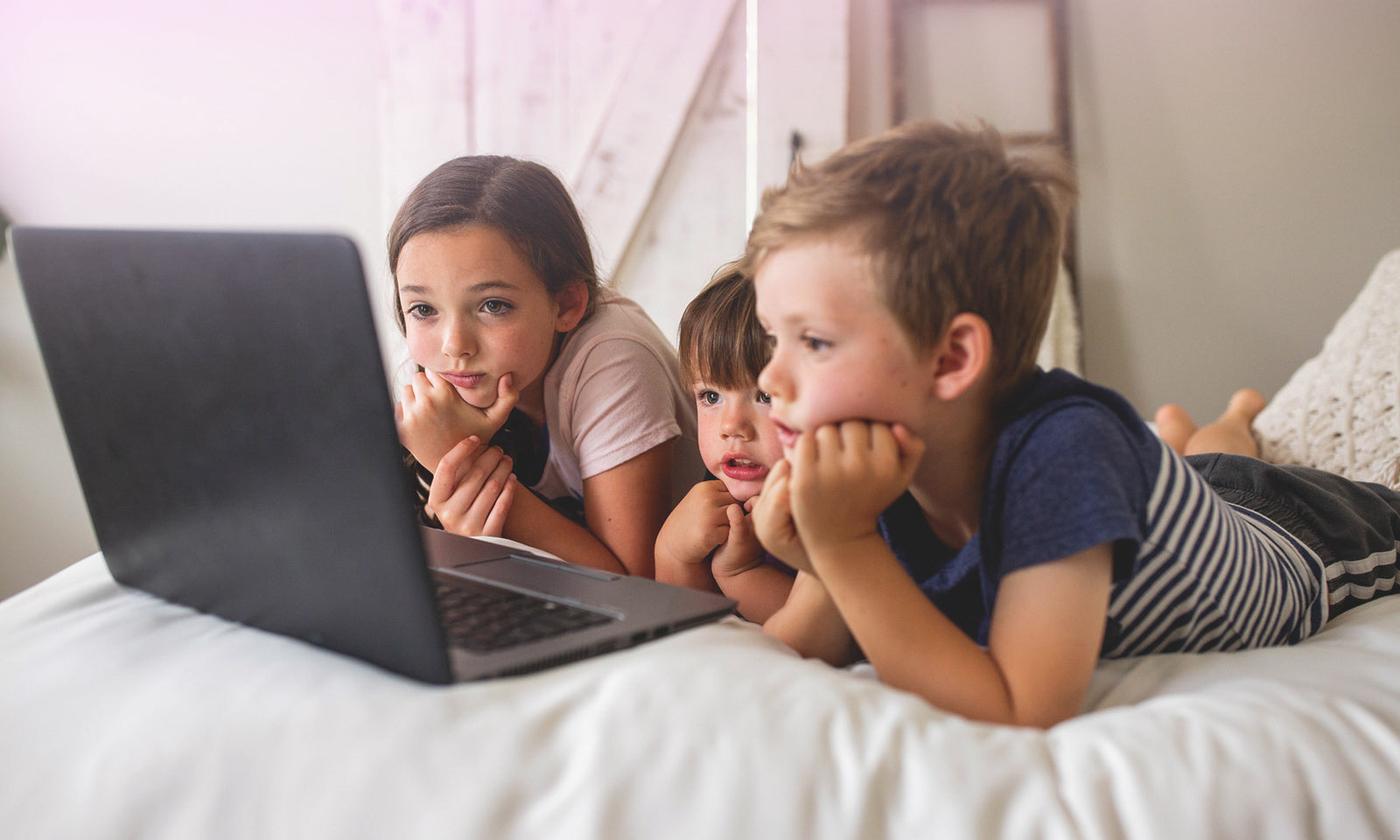Whether it is television, tablets, computers, smartphones, or others, we can say that it is impossible for us to live without screens these days. If adults are not spared, neither are young children!
Indeed, we are increasingly seeing a significant increase in the use of screens by our little ones. Although this has advantages, there are also several dangers, especially for children. In this article, we'll talk about everyday screen use and how to balance digital use for young children.
Screen Exposure
Screen exposure is the time we spend in front of digital devices for activities such as gaming, learning, communicating or entertainment. Screens are everywhere in children's lives: at school, at home, in waiting rooms, etc. They can be a good source of learning, but they also pose challenges for their development.
The various types of screens
There are several types of screens, each with its own characteristics:
- Television:
It was the first screen that entered homes. Although there are many new technologies now, television remains a very important medium.
- The computer:
It has become essential for homework and school projects. It provides access to online educational resources and allows children to learn basic computer skills, crucial today.
- The tablet :
Its portability allows children to learn and be entertained anywhere. Some schools use it for educational apps and e-books.
- Le smartphone :
It has changed the way we interact, but it poses challenges for managing screen time and monitoring content, especially for children.
- The games console:
Very popular with young children and adolescents, it offers a wide range of games, whether alone or with friends. Although some games help develop strategic skills, it is important to regulate playing time to avoid excessive use.

The integration of screens into children's lives
Children's use of screens depends on their age, family environment and cultural values. Parents and educators often seek to balance the educational benefits of screens with the risks of excessive use.
It is important to set clear limits around screen time and encourage children to participate in various activities outside the screens to guarantee harmonious development.
The benefits of screens for children
Screens can offer several benefits to children, especially when used in a supervised and balanced way:
- Education and learning: educational tools on screen can enrich children's knowledge while improving their academic performance and their level of intelligence.
- Development of digital skills: Screens help children learn computer and internet skills, crucial skills for their future lives.
- Socialization and communication: Video games, whether cooperative or competitive, can promote socialization and cognitive development. Additionally, video calls and messaging allow children to stay connected with their loved ones.
- Creativity and personal expression: Digital applications and tools offer many opportunities for children to explore and express their creativity through drawing, musicality, video creation or programming.
- Entertainment and relaxation: Screens are also a source of entertainment that helps you relax after a busy day, with films, series and video games.
Additionally, screens can be beneficial in some specific contexts. For example, they have shown positive effects on the learning of children with cognitive developmental disorders and on children with autistic disorder. Active video games can also improve behaviors and cognitive development.
For optimal use of screens, parental support remains essential. Before choosing the care arrangements for your child, it is also important to emphasize this crucial aspect.

The effects of screens on the health of young children
Screen use among children has become a major concern for parents, educators, healthcare professionals, and even government authorities due to the potential impacts on physical and mental health.
Physical impact of screen use
The physical effects of excessive screen exposure may include:
- Eye problems: visual fatigue, dry eyes and irritation. Blue light from screens can also disrupt sleep patterns.
- Sleep problems: Using screens before bed can interfere with the production of melatonin, the sleep hormone, making it more difficult to fall asleep.
- Posture problems: Spending many hours in front of a screen can lead to neck, back and shoulder pain due to poor posture.
- Obesity: too much screen consumption reduces the time available for physical activities and promotes snacking, thus contributing to weight gain.
- Motor delay: In young children, excessive use of screens can slow the development of fine motor skills, which are best developed through outdoor physical games and interactive.
Cognitive and emotional impact
Screens can also influence:
- Brain development and learning: Overexposure to screens can increase the risk of language delay and affect the cognitive development of young children.
- Attention and concentration: Even the presence of a television on in a room can affect children's concentration, even if they are not actively looking at the screen.
- Emotional well-being: excessive use, more than four hours per day, is associated with problems of emotional management and an self esteem scaled down.
Additionally, compulsive screen use is increasingly recognized as an addiction problem, with symptoms similar to those seen in other forms of addiction, thereby affecting mood and overall well-being.
Night lights and screen management: Creating an environment favorable to children's sleep
Screen management for children is a major concern for many parents today, especially when it comes to their children's overall well-being and sleep. The integration of night lights can play a crucial role in this dynamic. Indeed, a bright night light gentle and non-intrusive can help regulate the child's nighttime environment, creating a calming space conducive to sleep.
While prolonged exposure to screens before bed can disrupt circadian rhythms by emitting stimulating blue light, a night light can provide gentle light that does not affect melatonin production. By establishing a bedtime routine that includes screen-free time and calming lighting, parents can encourage better balance and a smoother transition to sleep for their children.

Guidelines for Healthy Screen Use in Children
Screens have become omnipresent in our daily lives, but their excessive use among children is now considered a public health problem by many authorities.
Here are some recommendations to guide parents in managing screen use:
- Before the age of 3: It is advisable to avoid screens unless parental interaction is provided.
- 3D screens: They are not recommended for children under 5 years old.
- Bedroom and sleep: It is recommended not to put a screen in children's bedroom and not to let them watch television one hour before going to sleep.
- Personalized support: Adjust the use of screens according to the type of screen, age and content.
- Balance: Find a balance between allowing and restricting, and limiting screen time to allow for other activities.
- Warning signs: Be alert for signs of excessive use and seek help if necessary.
For'OMS :
- Before the age of 2: It is recommended to avoid any exposure to screens due to their young age.
- Between 3 and 5 years old: Limit screen time to one hour per day maximum.
The American Academy of Pediatrics (AAP) suggests introducing screens starting at 18 months, but emphasizes the importance of choosing appropriate content and having parents present during use.
The message remains the same, it is crucial to remain vigilant and limit children's exposure to screens.
What experts say about screens and child development
Experts agree that screens can provide many benefits for children's development, provided their use is well regulated. To maximize these benefits, it is essential to set reasonable limits on screen time, choose quality content, and ensure that children also participate in non-screen activities. Screens are not inherently harmful; it is their use that must be intelligent and balanced.







